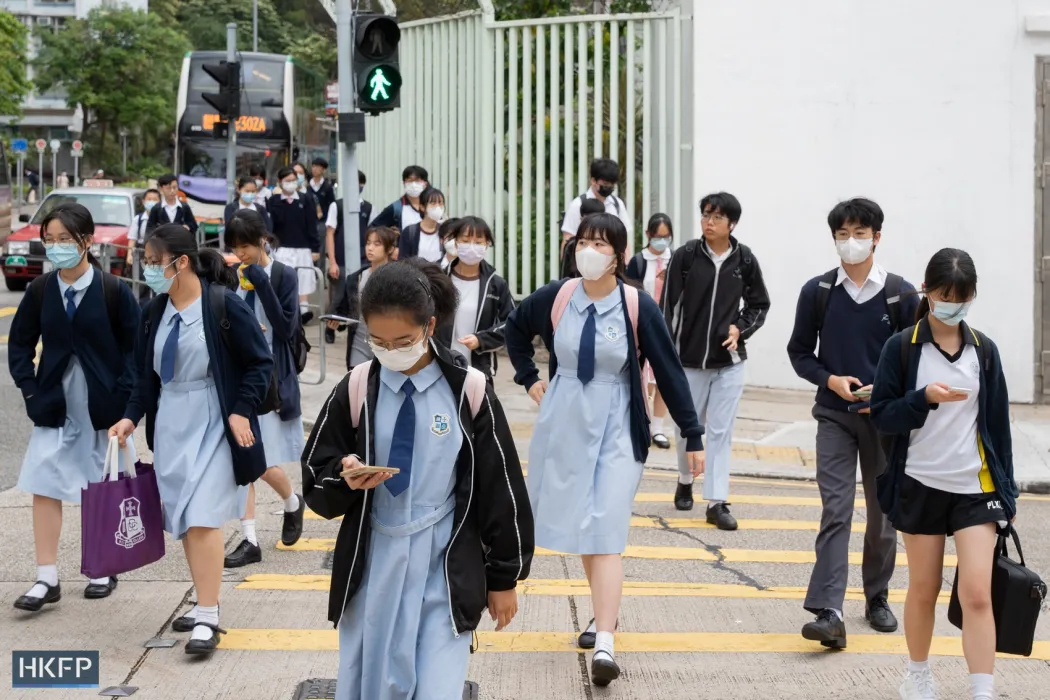Hong Kong students have been told to look after their eyesight and participate in an annual health assessment as the number of youngsters needing glasses increased by 4 per cent during the Covid-19 pandemic.

Students’ vision has deteriorated in recent years, particularly among lower-grade primary students, the Department of Health said on Tuesday citing data reviewed by the Student Health Service.
Between the 2015/16 school year and 2019/20, the percentage of Primary One students who wore glasses remained at 11 per cent. It rose to 15 per cent in 2020/21, after Hong Kong was hit by the Covid-19 pandemic, and stayed the same for the 2022/23 school year, the department said.
The overall percentage of primary and secondary students who were referred to government optometry services also increased from 9.4 per cent in 2018/19 to 16.7 per cent in 2020/21, before dropping slightly to 13.2 per cent in 2022/23.
“During the Covid-19 epidemic, students had less participation in outdoor activities and spent more time online with electronic screen products, leading to a marked increase in screen time in primary and secondary students,” the department said in an English language statement.

Face-to-face classes were frequently interrupted throughout Covid, leaving students no choice but to learn remotely using electronic devices. The resumption of full-day in-person classes was later subject to vaccination requirements, before the city eased other Covid-19 policies.
The Department of Health also pointed to the proportion of primary school students who spent at least two hours per day on the internet or in front of screens for non-schoolwork purposes, which stood at 50.1 per cent in 2021/22. It marked a significant increase from 32.2 percent in 2018/19 and 25.8 per cent in 2015/16.
Similarly, the Student Health Services found that 81.2 per cent of the secondary students who attended its centres used the internet for at least two hours a day for purposes other than school assignments. The figure stood at 65 per cent in 2015/16.
Students should use proper lighting and keep a proper distance when viewing screens, the department said. They should also take breaks from time to time,, blink frequently, and get their eyes checked regularly, it said.

In August, a study by the Chinese University of Hong Kong’s Faculty of Medicine revealed that there had been a “myopia boom” in children aged six to eight, with near-sightedness reaching a record high in Hong Kong following the pandemic.
Results showed that myopia prevalence among the 20,527 children whose vision was examined before, during and after the pandemic increased by half on average after Covid-19 restrictions were lifted, reaching a record high of 36 per cent.
Support HKFP | Policies & Ethics | Error/typo? | Contact Us | Newsletter | Transparency & Annual Report | Apps
Help safeguard press freedom & keep HKFP free for all readers by supporting our team

LATEST FROM HKFP
HKFP has an impartial stance, transparent funding, and balanced coverage guided by an Ethics Code and Corrections Policy.
Support press freedom & help us surpass 1,000 monthly Patrons: 100% independent, governed by an ethics code & not-for-profit.










